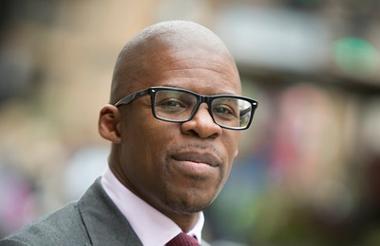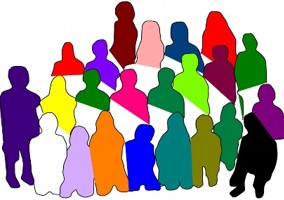Improved charity reporting on workforce diversity may not lead to people of colour being paid as much as their white colleagues, British Red Cross’ chief support officer has said.
Speaking at a debate earlier this month hosted by Black, Asian, multi-ethnic and refugee-led charity Money4YOU, Paul Amadi said requirements for large charities to report their gender pay gap data had not led to significantly better pay for women in the sector.
Amadi was responding to Money4YOU’s campaign, launched earlier this month, calling for the Charity Commission to require all voluntary organisations to report diversity information about their senior leaders and trustees.
Carol Akiwumi, Money4YOU’s chief executive, said requiring charities to report their gender pay gap had led to “more lively debate” within the sector, if not increased pay for women.
Meanwhile, Jane Ide, chief executive of ACEVO, said she thought it was possible the Commission would consider introducing diversity reporting requirements if the sector was behind it and it would not create a “huge burden” on charities.
Maurice Mcleod, chief executive of Race on the Agenda (ROTA), said that many charities did want to improve the diversity of their organisations and that to do so was “mission critical” for the sector.
Diversity reporting ‘may not close the pay gap’
Amadi said at the debate: “The harsh reality is that I think better reporting isn't necessarily going to close or address the pay gap, such as it exists, because it hasn’t so far.”
He drew a comparison with the government’s requirement for all organisations with more than 250 employees to submit their annual gender pay gap data by 4 April each year since 2017-18.
Civil Society News has analysed data for the largest 100 charities over the past five years and found that the mean gender pay gap for our sample has decreased from 11.2% in favour of men in 2017-18 to 10.1% in 2021-22. This means that on average women earn 90p for every £1 earned by men.
Amadi said that the 1% reduction in the gender pay gap since mandatory reporting was introduced shows that “for whatever reason, it's not necessarily impacted at a scale that we would wish”.
“Mandatory gender pay gap reporting, in and of itself is a good thing,” he said. “But we don’t want to have undue or unreasonable expectations about what [diversity data reporting requirements] will necessarily lead to in terms of practice.”
Akiwumi disagreed and suggested that the “1% gain may not have happened and maybe might have regressed” over the past five years if mandatory requirements had not been in place.
“I don't think it's necessarily true that increased accountability doesn't lead to change,” she said. “If we think about the case of gender pay gap, specifically, it's clearly led to much more lively public debate and of injustices being called out.”
Will the regulator introduce requirements?
The Commission said in response to Money4You’s letter, signed by 65 organisations, that it appreciated their concerns and “will consider their recommendations as part of our ongoing work on this issue”.
Ide said she thought the Commission could introduce diversity data reporting requirements so long as they were popular with the sector and not too onerous, particularly for smaller charities, to fulfil.
“From the conversations I've had with the Commission so far, this is where the Commission is probably coming from,” she said. “That sense of if this is something that the sector is behind, if this is something that the sector will agree and feel is beneficial in the long run, and doesn't see it as such a huge burden, but they just can't manage it, then, then I think we could be moving in the right direction.”
Mcleod said he knew anecdotally that the charity sector wants to improve its diversity and racial equality.
He noted “the amount of contact we get often from larger organisations saying, ‘look, we really can't get over this problem of diversity, let's really have a look at all of our processes, our recruitment our retention our promotion’.”
‘Charities must reflect the people they support’
Mcleod also quoted ACEVO’s own pay and equality survey, which found that only 25% of respondents were happy with the ethnic diversity of their boards.
“I suppose there is a burden to collecting data, but I really can't think of a sector where the ‘nothing about us without us’ mantra should hold more true than the voluntary sector,” he said.
“By our very nature of the work we do, we're working with the most marginalised communities.”
He added: “If we're really, really going to be doing our job properly, we have to have to, at least in some way, reflect the people that we're trying to work with.”













